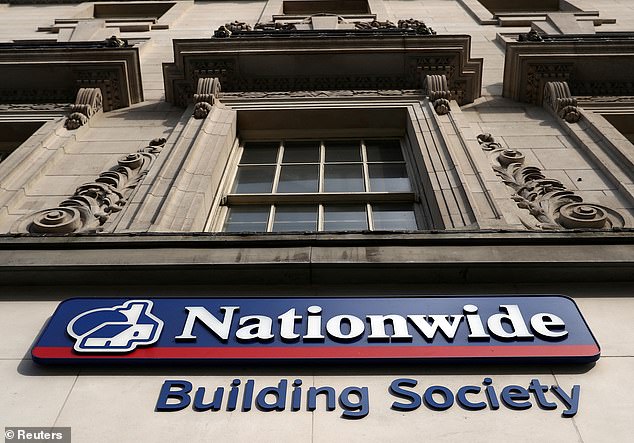Table of Contents
<!–
<!–
<!– <!–
<!–
<!–
<!–
The work of the British Takeover Panel is admired for its clarity. It sets the rules for bids and deals and avoids the legal quagmire that often occurs in the US.
Nevertheless, a tight timetable for submitting a bid and closing a deal too often favors the acquirer, which has contributed to the ease with which overseas predators have taken over emblematic companies.
It also leaves British companies vulnerable to hedge funds, which crowd onto the share register in anticipation of a bid – or after a bid – in anticipation of quick profits.
You would expect that Nationwide, as a member-owned mutual association, would gain maximum buy-in for a major strategic move.
The intentions to spend £2.9 billion of members’ money on buying Virgin Money are ambitious.

Takeover plan: Nationwide plans to spend £2.9 billion of its members’ money to purchase Virgin Money
It increases the range of personal services such as credit cards and gives a foothold in business banking.
The rush to take over without fully consulting members was not constructive. Throughout the process, Nationwide has argued that the strict takeover schedule did not allow enough time to survey or consult approximately 16 million members.
There were also concerns that the purchase price, which was well below Virgin’s book value, could entice another buyer. So it was crucial to follow through on the deal.
As the transaction has progressed, there has been a steady build-up of petitioners among members wanting more input and asking what’s in it for them.
In his latest letter to members (including this writer), chairman Kevin Parry tries to dispel the unrest with a promise.
He notes that the Nationwide had enough surpluses in 2023 to offer a Fairer Share Payment, essentially a bonus, to eligible members. Last year was a healthy one for financial groups due to the widening gap between interest rates on loans and the interest paid to savers.
Parry argues that a stronger group would make such payments more likely for Nationwide members in the future.
Maybe. However, this incentive is not guaranteed. Chief executive Debbie Crosbie has a proven track record of closing deals and delivering value.
The Advertising Standards Authority’s backlash over TV commercials’ claims that Nationwide, unlike big banks, is not closing branches has been branded misleading.
Not so good for credibility. However, a lot is required of members in terms of trust, including the thoroughness of the due diligence investigation into the takeover target.
By aggressively pushing the deal and citing merger rules as the reason, Nationwide has erected an unwanted protective shield.
Magical master class
Bringing members and/or individual shareholders on board can be a real plus for listed companies that are in a tight spot.
Twenty years ago, the late Paul Myners and Stuart Rose used the army of private M&S investors to fend off an unwanted bid from Philip Green.
Walt Disney’s veteran boss Bob Iger used similar tactics to ban corporate raider Nelson Peltz from the theme park amid complaints of substandard performance and woke up.
Iger has been in direct contact with Disney’s private shareholder base, reportedly as high as 40 percent, with a barrage of letters, brochures, social media posts and goodies.
These include a 50 percent dividend increase, a $3 billion (£2.4 billion) share buyback and an investment in North Carolina-based Epic Games.
Iger also collected messages of support from celebrities including the Disney family, Star Wars creator George Lucas and JP Morgan boss Jamie Dimon.
He is a victory for popular capitalism.
Flying lessons
Virgin Atlantic nearly collapsed during the pandemic after the government rejected a bailout request.
The airline eventually managed to put together a self-help package, with Richard Branson raising £200 million after selling shares in space company Virgin Galactic and persuading 49 percent holder Delta of the US to join in.
Now CEO Shai Weiss is promising a return to profit in 2024 after the airline made a £139 million loss last year.
Britain needs a competitive airline to the US, the Caribbean, India and others to ensure service standards at BA do not decline further.

